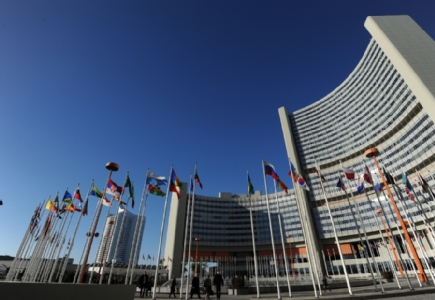FATF report: "Money Laundering from Environmental Crimes"
28 June 2021: UNODC co-led a new FATF report entitled "Money Laundering from Environmental Crimes". The report looks at the methods that criminals use to launder the proceeds of environmental crime. Efforts to detect, pursue and disrupt environmental crimes have not been proportionate to the sector worth up to 281 billion USD/year. When properly implemented, the FATF Recommendations provide effective tools to disrupt these illicit financial flows. To read the report please click here.
Cryptocurrency Training in Vienna
Courses in Vienna will be announced soon!
To read more about the training please click
here.
AML/CFT activities of UNODC in South Eastern Europe
UNODC's regional office in South Eastern Europe is building the regions capacity in fighting money laundering and terrorist financing. UNODC has posted a regional anti-money laundering and counter terrorism financing adviser in South Eastern Europe, to have a consistent strategy in the in tackling these crimes within the region. To see the video on the office's activities please click here.
Cryptocurrency Investigation eLearning Course
UNODC's Global Programme on Cybercrime and the Global Programme against Money Laundering, the Proceeds of Crime and the Financing of Terrorism (GPML) are pleased to launch the Cryptocurrency Investigation eLearning course in English.
The course is also available in ARABIC, FRENCH, HUNGARIAN, RUSSIAN, SERBIAN, SPANISH, and THAI.
The eLearning course is the initial component of UNODC's Cryptocurrency Investigation Training Programme and is available in the above mentioned languages. The objective of the eLearning course is to develop the knowledge of analysts, law enforcement officers, prosecutors and judges regarding the topic.
In addition, the course explains how cryptocurrencies, including Bitcoin, work by focusing on the key definitions, internal mechanics of cryptocurrency and the blockchain ledger. This course will explore the ecosystems of Bitcoin and other popular cryptocurrencies, whilst addressing and reviewing community regulations (or lack of) and wider governmental controls.
The eLearning package provides an essential backdrop for those who proceed to undertake classroom-based cryptocurrency investigation training.
Building a strategic partnership platform between each attendee is a key priority for UNODC. This course will increase the knowledge and skills of the experts whilst helping share best practice of how to develop blockchain-based international investigations.
To browse the course in English, click here; To browse the course in Spanish, click here; To browse the course in Arabic, click here; To browse the course in Thai, click here; To browse the course in Hungarian, click here; To browse the course in French, click here; To browse the course in Serbian, click here; To browse the course in Russian, click here.
Current and Upcoming Events 2021
ASIA/PACIFIC GROUP ON MONEY LAUNDERING (APG)
Virtual Working Group and Plenary Meetings
17-23 July 2021
Publications/Reference
UNODC, Commonwealth Secretariat and the International Monetary Fund Model Law
Common Law Legal Systems Model Legislative Provisions on Money Laundering, Terrorism Financing, Preventive Measures and Proceeds of Crime.
August 2016
FATF Study on 'The role of Hawala and Other Similar Service Providers in Money Laundering and Terrorist Financing'
[ Russian ]
October 2013
Basic Manual on the Detection and Investigation of the Laundering of Crime Proceeds Using Virtual Currencies [
Russian]
UNODC Virtual Currencies Manual
June 2014
Financial flows linked to the production and trafficking of Afghan opiates
[ Spanish ]
FATF Report on Financial flows linked to the production and trafficking of Afghan opiates
June 2014
ARINWA Assessment Study on 'Seizure, confiscation and management of proceeds of crime in West Africa', proposed establishment of an "ARIN" type network for West Africa
March 2014
Pirate Trails
Tracking the Ilicit Financial Flows from Pirate Activities off the Horn of Africa. A UNODC, World Bank and Interpol Joint Study.
November 2013
Risk of Money Laundering through Financial and Commercial Instruments, Version II
November 2013
UNODC/IMF Model Legislation on Money Laundering and Financing of Terrorism [
Russian ] [
French] [
Arabic]
![]()
December 2005, (for civil law systems)
··»»more model laws...
An Overview of the UN Conventions and Other International Standards Concerning Anti-Money Laundering and Countering the Financing of Terrorism
(January 2013)
··»»more reference materials...
Tools
UNODC Global Programme against Money Laundering, Proceeds of Crime and the Financing of Terrorism (GPML) Fact Sheets on its products and tools
August 2012
-
Manual and Workshop on the Risk of Money-Laundering through Financial Instruments
-
Money Transfer Services
Money Transfer Services Manual
Mutual Legal Assistance Request Writer Tool
International Standards
New FATF Methodology for Assessing Technical Compliance with the FATF Recommendations and the Effectiveness of AML/CFT Systems
February 2013
Revised FATF Recommendations - International Standards on Combating Money Laundering and the Financing of Terrorism & Proliferation
February 2012
United Nations Convention against Corruption
(available in Arabic, Chinese, English, French, Russian and Spanish)
Council of Europe Convention on Laundering, Search, Seizure and Confiscation of the Proceeds from Crime and on the Financing of Terrorism, [
French]
Explanatory Note
(Warsaw, 16 May 2005)
Directive 2008/20/EC of the European Parliament and of the Council of 11 March 2008 amending Directive 2005/60/EC on the prevention of the use of the financial system for the purpose of money laundering and terrorist financing, as regards the implementing powers conferred on the Commission [ French ] [ Spanish ]
Directive 2005/60/EC of the European Parliament and of the Council of 26 October 2005 on the prevention of the use of the financial system for the purpose of money laundering and terrorist financing [ French ] [ Spanish ]
United Nations Conventions against Terrorism
(available in Arabic, Chinese, English, French, Russian and Spanish)


